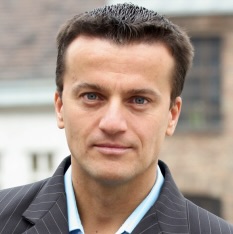Newsletter N°24 - November 2021
EDITORIAL
Climate Policy for the People, with the People
How Citizens' Councils with Direct Democracy can help Climate Policy get on its Feet
The OECD speaks of a "deliberative wave" and refers to the rapidly increasing number of citizens' councils and assemblies around the world. Numerous lottery-based citizen participation models aim to resolve blockages to climate action while bringing the public's perspective to bear on climate policy. In Ireland, France, UK, Scotland, Washington State, Scotland and Germany and many more countries, the procedures have been completed and show recommendations with ambitious and socially fair climate protection. Partly, the procedures have been initiated by governments and parliaments, partly, as in Germany, to influence the coalition talks and for the climate protection conference COP 26 in Glasgow, started and financed by civil society.
These opportunities for deliberative citizen participation become truly effective when they are combined with the direct democratic instrument of binding referendums, as in Ireland on the issue of abortion and same-sex marriage. In the motherland of direct democracy, Switzerland, experts around the Green Party's Balthasar Glättli are also planning to link citizens' councils with the instruments of direct democracy.
In the rest of the world, citizens' councils and citizens' assemblies - which are not quite the same in concept - are usually only consultative, i.e. they advise on the final decisions in parliaments and governments. There is a danger that well-organized and financially strong interest groups will once again pressure politicians not to implement the usually ambitious proposals and recommendations from the citizens' councils and assemblies on a 1:1 basis. This is what has happened in France, despite President Macron's promises to the contrary. At the EU level, it remains to be seen how the input of the citizens' councils will be taken seriously at the conference on the future of the EU.
But there is one thing that these participation formats do achieve. They make climate protection policy understandable, break down complex interrelationships into the realities of people's lives, and they refute the excuse of many politicians that they are planning more ambitious climate protection anyway, but that the population is not yet ready for it, such as the yellow vests in France. On the contrary, the experiences of the Citizens' Councils and Citizens' Assemblies on climate protection show that it is the population that must succeed in bringing politics along rather than the other way around. We will support them in this. Please help us to do so.

Erwin Maier
Board Member, Democracy International e.V.
|
